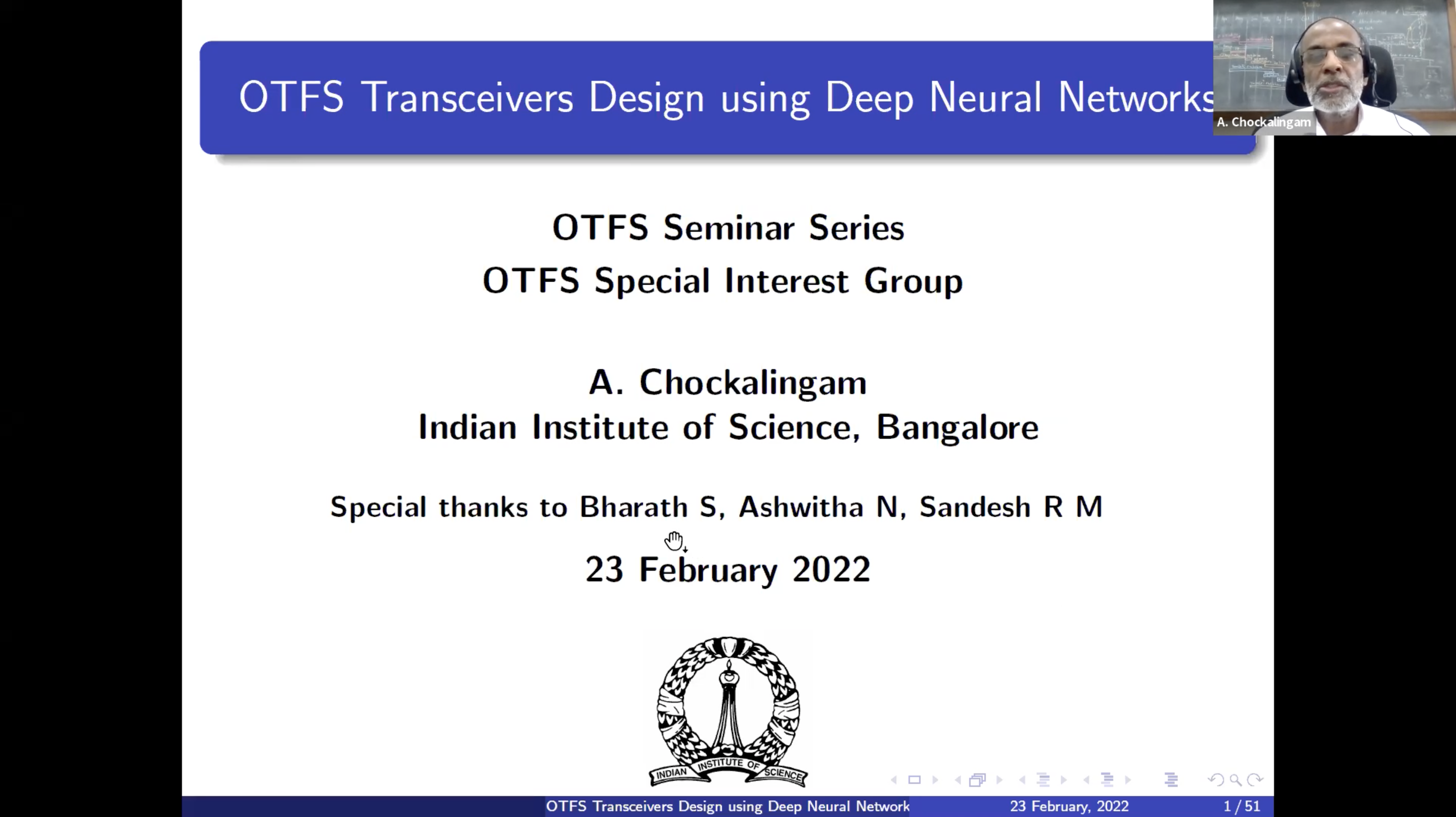 OTFS Transceivers Design using Deep Neural Networks
OTFS Transceivers Design using Deep Neural Networks

OTFS Transceivers Design using Deep Neural Networks
Orthogonal Time Frequency Space (OTFS) modulation, a recently introduced modulation scheme that multiplexes information symbols in the delay-Doppler (DD) domain, has been shown to offer robust performance in high-Doppler channels – channels where OFDM fails to perform well.
Next-generation wireless systems are envisioned to provide a variety of services with a wide range of requirements, including support for high-mobility/high-Doppler use cases involving high-speed trains, airplanes/UAVs/drones, and mmWave band operation.
A key requirement in OTFS transceivers design in signal processing in the DD domain. This talk focuses on the use of deep neural networks (DNNs) for the efficient design of OTFS transceivers. Like in a wide range of fields, deep learning has found application in wireless PHY layer design (e.g., design of channel codes, signal detection, channel prediction and tracking, beamforming, precoding).
With the advent of libraries available for training, it has become easier than ever to train and deploy application-specific neural networks. This is aided by the availability of hardware tailor-made for training neural networks.
The time required to train neural networks, even complex ones having a large number of parameters, has reduced drastically. The networks also have the advantage that once trained, they are computationally efficient when compared to conventional optimal algorithms.
This talk starts with a brief introduction to DNNs and goes on to present the design of a low-complexity DNN architecture for OTFS signal detection, and a multi-DNN architecture for delay-Doppler channel training and detection, along with IQ imbalance (IQI) compensation at the transmitter and receiver.
Results on performance and complexity suggest that the DNN-based approach is attractive for the design of practical OTFS transceivers.
Orthogonal Time Frequency Space (OTFS) modulation, a recently introduced modulation scheme that multiplexes information symbols in the delay-Doppler (DD) domain, has been shown to offer robust performance in high-Doppler channels – channels where OFDM fails to perform well.
Next-generation wireless systems are...
 Cart
Cart Create Account
Create Account Sign In
Sign In






